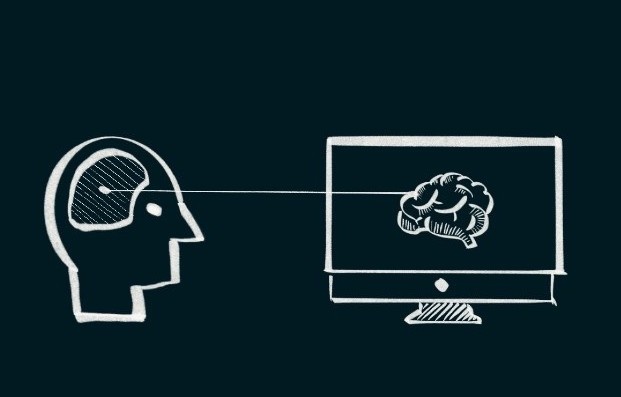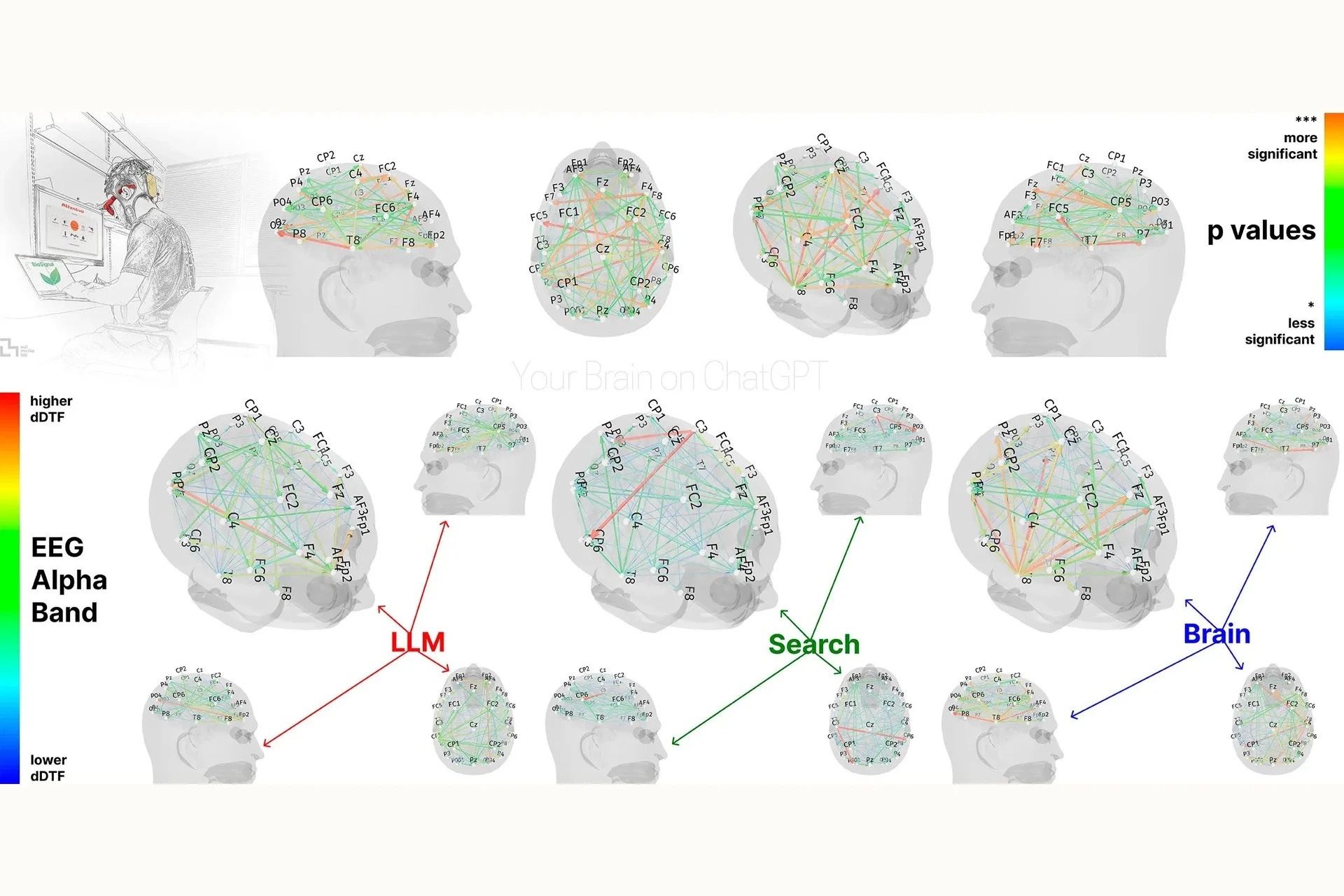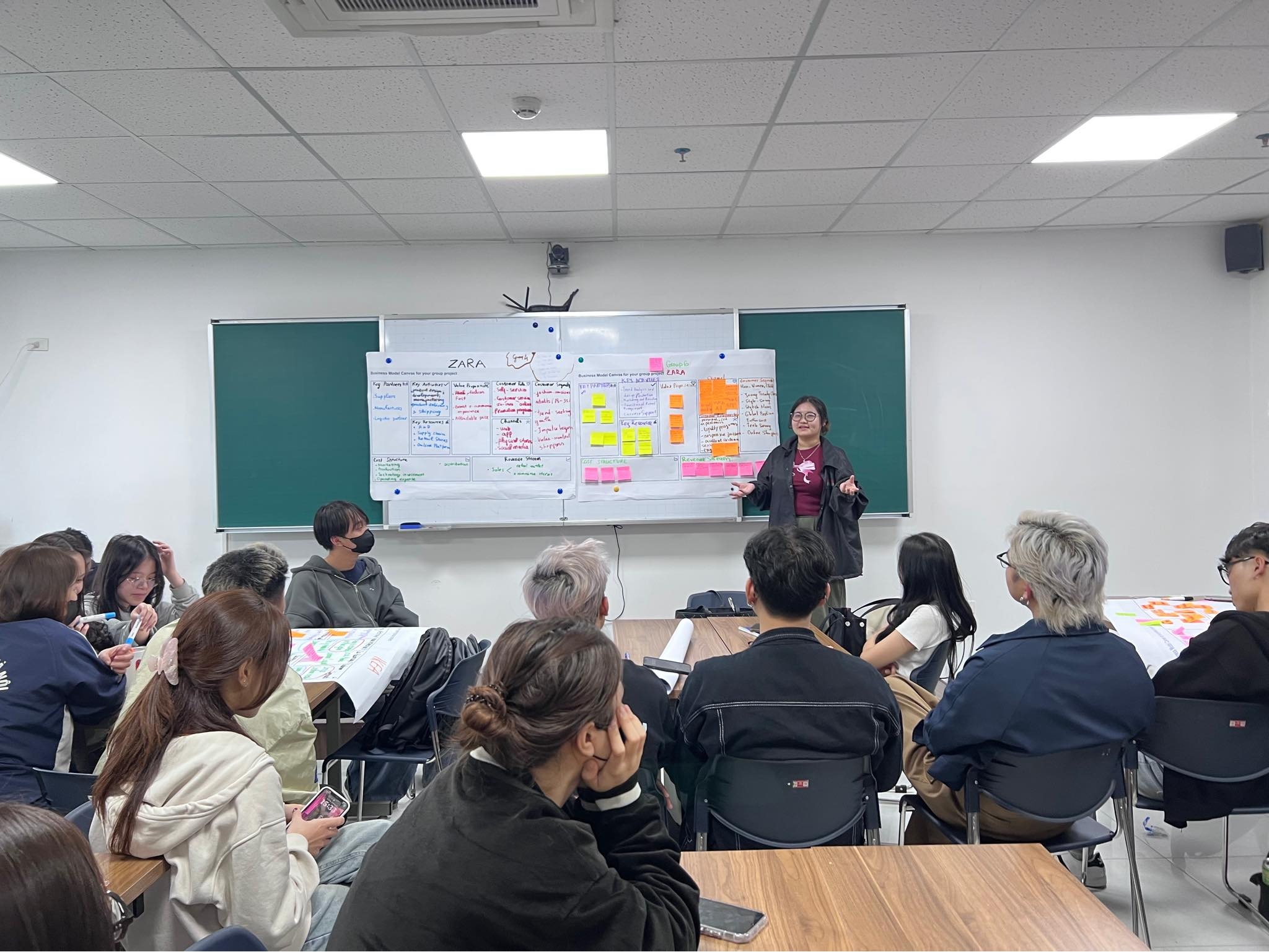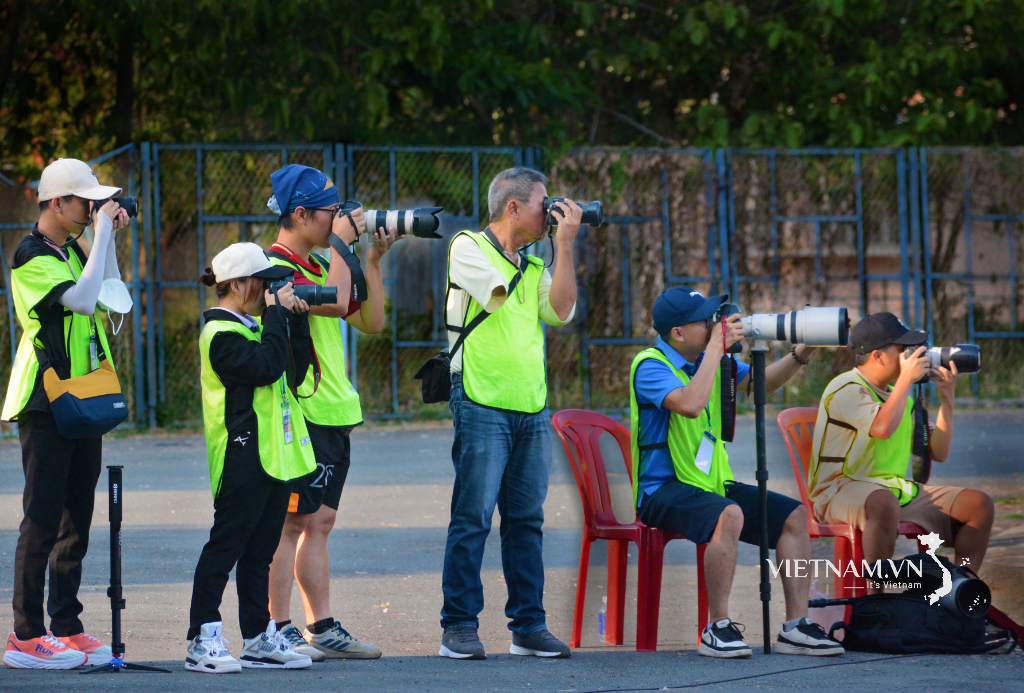 |
The use or misuse of AI will affect your thinking. Photo: Cesarrg Blog . |
A recent study from MIT has drawn attention to the fact that the overuse of ChatGPT can negatively impact critical thinking skills, especially in young people. Many university lecturers also complain that students are increasingly relying on AI for essays, leading to a decline in the quality of their thinking.
However, AI is an irreversible reality. Artificial intelligence applications have become one of the most important skills in today's job market, alongside critical thinking and creativity. Instead of fearing its impact on our thinking and analytical abilities, we need to master and utilize AI effectively.
Concerns about dependence on AI
The MIT study divided participants into three groups: one using ChatGPT, one using Google search, and one using no tools at all. Researchers asked them to write SAT-style essays and used electroencephalography (EEG) to measure brain activity.
The results showed that the group using ChatGPT had the lowest level of neural interaction. Specifically, their essays were judged to lack depth and independent thinking, and were largely copied and repeated.
Lecturer Tuan Nguyen at RMIT University explained on his personal page that in the age of AI, in exchange for instant convenience and speed, you have to pay the price with "cognitive debt." "From writing an essay and solving a math problem to planning, relying on AI deprives the brain of opportunities for training," he wrote.
 |
Comparison of brain activity between AI users and non-users. Photo: Nataliya Kosmyna. |
In a comment, user Kim Anh shared that she also felt an invisible void when using AI to create content and use the results for work and study. Furthermore, she felt guilty about herself after each time she used a chatbot.
In some other areas, the misuse of AI has become more complex. Thanh Hai, a computer science student at the Polytechnic University, shared that he discovered many of his classmates were completely dependent on chatbots during group assignments. “Some languages like C or C++ are easy to program, so some students use ChatGPT to get all the results,” Hai said.
For Minh Thu, an office worker at a media company, AI has become an indispensable element in her daily work. When ChatGPT crashed in mid-June, she shared her panic on social media, then quickly switched to another tool as a temporary solution.
AI is an irreversible reality.
Since its global launch in 2022, AI is now used by almost everyone. A report from Adecco across 23 countries shows that 70% of working professionals are using chatbots at work. The number is even higher for students and adults in the digital age.
Mr. Tran Hong Quang, Director of HQBC management consulting company and also a visiting lecturer at several universities, advises against viewing AI as a threat. Instead, he suggests it as a tool that can be leveraged to help students learn more deeply and creatively, if used correctly.
As an entrepreneurship instructor, Mr. Quang allows students to use ChatGPT to research market information and test value frameworks. Afterward, he asks them to formulate critical questions such as why the model is suitable (or not), or whether the strategy remains valid if the input values are changed.
 |
Teacher Quang encourages the proactive and controlled use of AI. Photo: Provided by the interviewee. |
"These questions force students to step out of their comfort zone, not simply relying on AI for answers, but to understand, question, and adjust the results provided by the AI," Mr. Quang wrote on his personal page. AI has now become a supporting tool, not a machine that does the work for them.
When asked about her reliance on AI, Minh Thu explained that due to her heavy daily workload, she is forced to use ChatGPT to optimize simple tasks. "I usually use AI to suggest basic information and initial directions. Most of the time, I adjust and develop from that content, rather than incorporating everything into my work," she said.
Some experts criticized the MIT study, arguing that it only applied to one area of student essay writing. Secondly, the number of participants was not very high (54 people), failing to reflect the majority of users.
Technology is developing rapidly. Fearing that AI will negatively impact critical thinking and reasoning, leading to its suppression and non-use, would go against the current trend of development.
Teacher Tuan believes that technology can be a lever to help you think better. To avoid the risk of intellectual "bankruptcy," use AI purposefully. Chatbots can become partners to generate ideas, critiquers to challenge your arguments, or tutors to explain complex concepts.
Source: https://znews.vn/dung-xem-ai-nhu-moi-de-doa-post1564605.html



![[Photo] General Secretary To Lam attends the opening session of the Peace Council on Gaza.](https://vphoto.vietnam.vn/thumb/1200x675/vietnam/resource/IMAGE/2026/02/19/1771516865192_tbttolam5-jpg.webp)



































































































Comment (0)